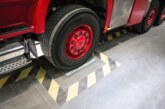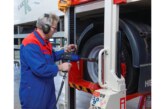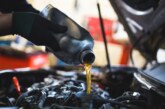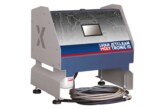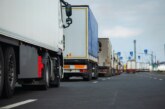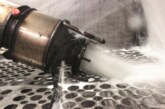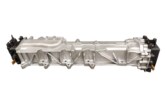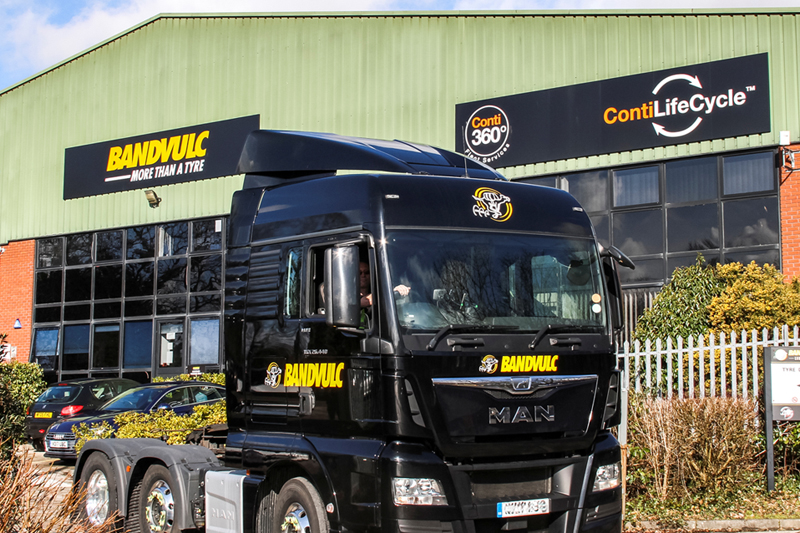
Since Continental Tyres acquired the Bandvulc tyre retreading business over three years ago, many steps have been taken to ensure utmost efficiency across the site. CVW took a visit to the facility in Ivybridge, Devon, to see how fitting retreaded tyres can be a positive move from a financial and environmental perspective.
The facilities at Ivybridge are used to take worn out tyre casings and turn them into premium quality retreads, which can then be reused in the haulage industry. Why does Bandvulc undertake this process? The end goal is to keep fleet operator costs down and reduce the negative environmental impacts associated with a tyre manufacturing. Every time you retread a truck tyre, 68L of oil and 30kg of rubber are saved, and 60kg less of CO2 is released into the atmosphere.
A second chance
As many operators will be aware, there has been an ongoing debate in the industry over the past four to five years about cheap, imported tyres versus a retread. When bringing in single-life tyres, particularly from overseas, a fleet manager might benefit from a low upfront cost, but choosing the retreaded alternative provides better value for money in the long term. There are also other benefits associated with a retreaded tyre that might otherwise be lost; a reduction in end-of-life waste (leading to a healthier environmental footprint), and a longer lasting product, which is rebuilt on the same standards as a new tyre. The retread market has declined by over 30% in the last 10 years due to cheap imports. That is now turning back around again due to import tariffs. Low-cost tyres from abroad aren’t always suitable for retreading. It’s estimated that of all the imports, over 500,000 are coming from China, and these are usually not reusable. This means that, for some vehicles, you end up with four or more useless casings, whereas, if you buy ‘premium’ new tyres in the first instance, they can begin their life over again. 80% of the tyre can be reused, so you’re saving the rubber and casing. In terms of the European-manufactured tyres available, 95% can be retreaded. This creates up to 5,500 jobs in the supply chain within the UK, including all support roles.
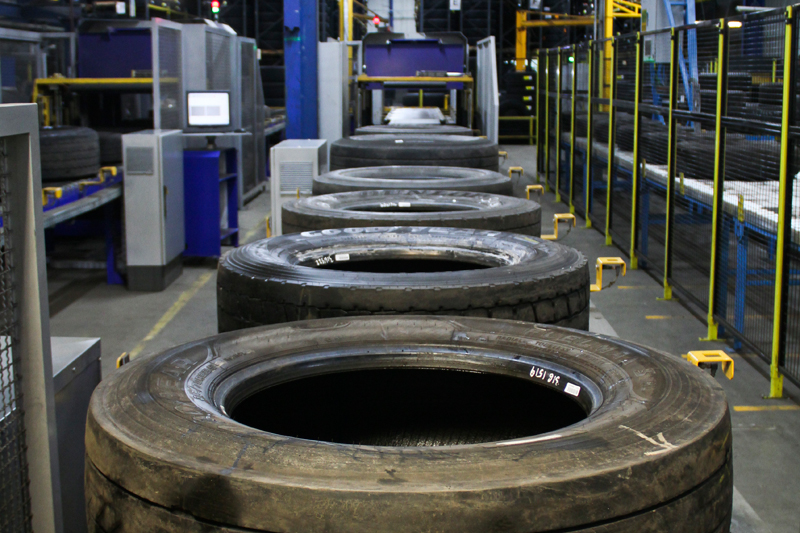
Recycling culture
As well as the products being less detrimental to the environment, it’s important that the facilities in which they are produced reflect this. Bandvulc has been focused on efficiency for a long time, which was one of the things that resonated with Continental prior to taking over the business; one of many similarities in business cultures. Energy is always monitored and automated around the site, showing what is being generated and used at any given time. The culture is to close things down and turn things off when not in use – all the way down to automated lights that come on when approached, and go off when you leave. When the factory shuts down at 6am on a Saturday morning, management can ensure everything is switched off.
When machinery is up and running, a steam recovery system is implemented within the manufacturing process, so energy is reused. In addition, solar energy investments have been made. The roofs of many of the buildings – offices, the factory and the warehouse – have solar panels installed, making best use of natural resources. Insulation is installed, mainly to keep the heat around the ‘ovens’ that are used to press tyres. Lastly, as you might expect, all office waste is recycled.
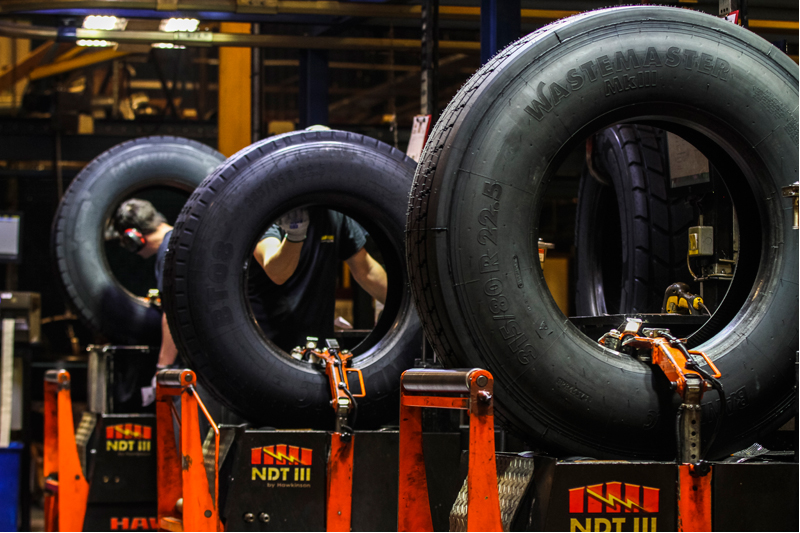
Ivybridge facility
During the visit to the Ivybridge site, CVW was given a full tour. First up was the rubber mixing plant – supposedly the only retreading mixing plant in the UK. Continental buys in its own rubber, mixing it into specific compounds. If it has a customer looking for low fuel consumption, a compound can be mixed for low rolling resistance. If it has a customer looking for duration and damage resistance, it can mix a stronger compound. Running individual tests specific to the UK market is something the company claims that others can’t do. In the warehouse, casings are received and inspected. Then, the acceptable tyres are prepared for retreading – here, the tyres are buffed and the dust is removed. This ‘dust’ is then reused for new tyre production elsewhere in Europe. Next, the tyre is built, remoulded, pressure tested and then finished, before being sent straight from the site to Continental’s redistribution centre in Rugby. Again, to increase efficiency, the return journey is used to bring back the next wave of casings to be retreaded.
There are approximately 22,000 casings stored in the casing yard outside the warehouse at any given time, which would keep the factory going for a month without restocking should it be needed.
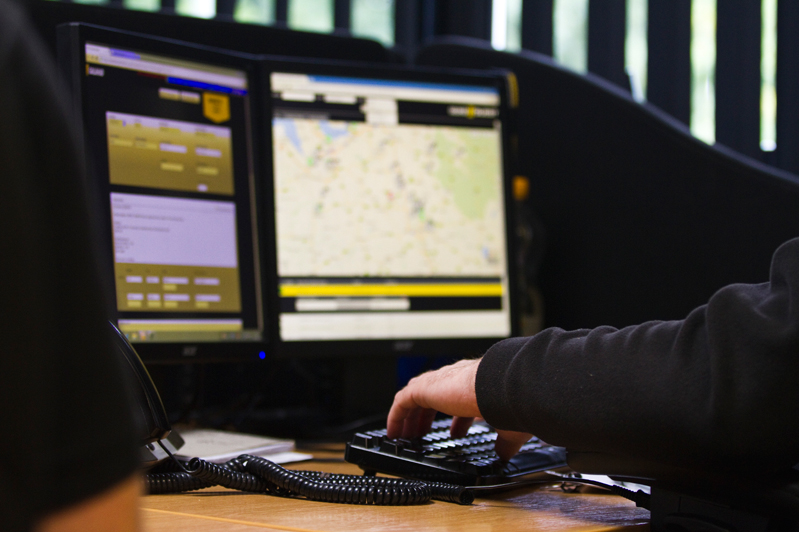
Health and safety is also important on such a site, and it is immediately obvious how seriously this is taken at the facility. Employees are colour coded in the factory. Red is trainee, green is first aid, blue is supervisor and black is permanent employee. This makes it easy to identify individuals in a loud and busy environment. There are marked walkways around the site. All chemical solvents which posed a risk previously have now been replaced with water-based solutions.
The site is efficient and economic – this is reflected in the repurposed products that are offered to the industry.

